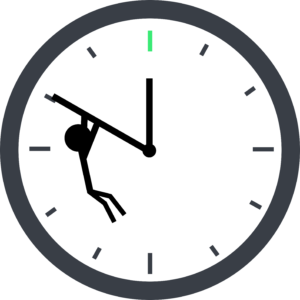
Ageing and Science | Understanding How and Why We Age
Ageing is an inevitable part of life, yet the processes behind it are complex and fascinating. Understanding the science of ageing helps us not only grasp why we age but also explore how we can improve health and longevity. By delving into the biological, genetic, and environmental factors that drive ageing, we uncover opportunities to extend healthspan—the years of life spent in good health—and potentially even lifespan.
In this guide, we’ll explore what ageing is, the theories behind it, and how cutting-edge research is transforming our understanding of the ageing process.
What Is Ageing?
Ageing is a natural biological process characterised by the gradual decline of physical and functional capabilities over time. This decline affects cells, tissues, and organs, leading to an increased risk of disease, frailty, and eventual mortality.
Key Features of Ageing:
- Cellular Changes: Cells accumulate damage over time, leading to reduced function or cell death.
- Genetic Alterations: Mutations and changes in gene expression can disrupt cellular processes.
- Physiological Decline: Organs and systems, such as the heart and immune system, become less efficient with age.
Theories of Ageing
Several theories attempt to explain the mechanisms behind ageing. While no single theory fully accounts for the complexity of ageing, each provides valuable insights.
- Free Radical Theory
-
- Suggests that ageing results from damage caused by reactive oxygen species (ROS), which are by-products of metabolism.
-
- ROS damage DNA, proteins, and lipids, impairing cellular function.
- Telomere Shortening
-
- Telomeres, the protective caps on the ends of chromosomes, shorten with each cell division.
-
- When telomeres become too short, cells enter senescence (a dormant state) or die.
- Cellular Senescence
-
- Senescent cells stop dividing and release inflammatory signals, contributing to tissue dysfunction.
- Mitochondrial Dysfunction
-
- Mitochondria, the cell’s energy producers, become less efficient over time, leading to energy deficits and increased oxidative stress.
Factors That Influence Ageing
Ageing is influenced by a combination of genetic, lifestyle, and environmental factors:
- Genetic Predispositions
-
- Certain genes, such as those related to longevity or disease resistance, play a role in how quickly we age.
- Lifestyle Choices
-
- Diet, exercise, sleep, and stress management significantly impact the rate of ageing.
- Environmental Exposures
-
- Factors like pollution, UV radiation, and toxins accelerate cellular damage.
The Importance of Longevity Research
Understanding the science of ageing has practical applications for improving health and extending life:
- Targeting Senescent Cells: Therapies that remove or rejuvenate senescent cells show promise in reversing some effects of ageing.
- Boosting Mitochondrial Function: Interventions to improve energy production may slow cellular decline.
- Developing Antioxidant Therapies: Compounds that combat oxidative stress could reduce tissue damage and delay ageing.
- Personalised Health Strategies: Advances in genetic testing and biomarkers enable tailored approaches to optimise healthspan.
Debunking Myths About Ageing
There are many misconceptions about ageing. Let’s set the record straight:
- Myth: Ageing Is Entirely Genetic
While genes play a role, lifestyle factors significantly influence how we age.
- Myth: Ageing Is Inevitable and Unchangeable
Emerging research shows that targeted interventions can slow, and even reverse, some aspects of ageing.
- Myth: Anti-Ageing Strategies Are Only for the Elderly
The best time to adopt longevity-promoting habits is at any age, as prevention is key to maintaining health.
Practical Tips for Supporting Healthy Ageing
- Stay Active: Regular exercise supports mitochondrial function and reduces inflammation.
- Prioritise Nutrition: A diet rich in antioxidants, healthy fats, and lean protein supports cellular health.
- Get Quality Sleep: Restful sleep allows the body to repair and regenerate.
- Manage Stress: Chronic stress accelerates ageing; practices like meditation and mindfulness help counteract its effects.
- Monitor Your Health: Regular check-ups and biomarker testing can provide insights into your biological age and health status.
Your Path to Understanding and Slowing Ageing
The science of ageing offers hope and opportunity. By understanding the biological processes that drive ageing, we can adopt strategies to enhance healthspan, reduce the risk of age-related diseases, and improve quality of life.
At Slowing the Clock, we’re committed to empowering you with the knowledge and tools to take control of your ageing journey. Explore our website for more resources on longevity research, health optimisation, and actionable strategies to slow the clock.